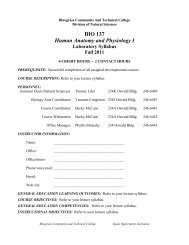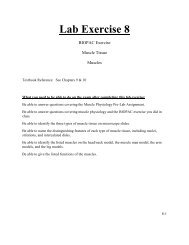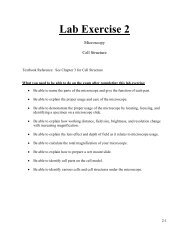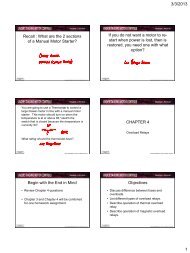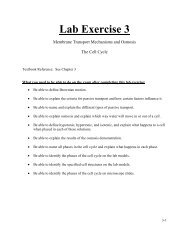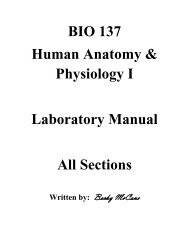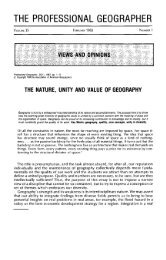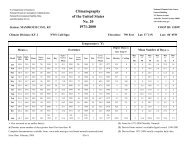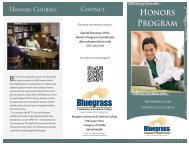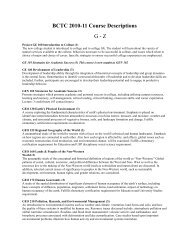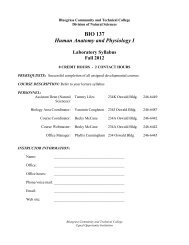Learning Strategies, Study Skills, & Paired Courses - College ...
Learning Strategies, Study Skills, & Paired Courses - College ...
Learning Strategies, Study Skills, & Paired Courses - College ...
You also want an ePaper? Increase the reach of your titles
YUMPU automatically turns print PDFs into web optimized ePapers that Google loves.
Using Think Alouds<br />
Description<br />
All too often a student believes that “everyone but me” can pick up any printed information, read<br />
it straight through, and understand it completely. To dispel this perception, I often use “think<br />
alouds” that model how I make sense of text.<br />
I ask students to bring in a newsletter or magazine about a hobby or a content textbook. I<br />
randomly select a student’s material and ask the student to identify a portion for me to read.<br />
Seated in front of the class, I begin to “read aloud.” I might, for example, start with previewing<br />
the selection and setting a purpose for my reading. As I read, I might pause to ask myself a<br />
question about the gist of what I am reading or even about individual words and phrases. I try to<br />
consciously draw upon background knowledge and refer to other things I might have read or<br />
heard about the topic. When something is particularly difficult to understand—and there is<br />
almost always something difficult—I stop and describe some of my options. When I complete<br />
the selection, I decide if I’ve fulfilled my purpose for reading. And, if I haven’t, I talk about what<br />
I should do next.<br />
By verbalizing my reading process on different types of materials, students see that most readers<br />
have to work at reading and that the amount of work depends on the material. This process gives<br />
students permission to not understand what they read the first time and gives them strategies for<br />
reading purposefully and productively.<br />
Additional Resources<br />
Salinger, Terry. (2003). “Helping Older, Struggling Readers,” Preventing School Failure, 48, 79-<br />
85.<br />
Pressley, M., & Afflerbach, P. (1995). Verbal Protocols of Reading: The Nature of<br />
Constructively Responsive Reading. Hillsdale, NJ: Erlbaum.<br />
Contributor<br />
Jane McGrath, Professor Emerita, Paradise Valley Community <strong>College</strong>, AZ (Jellenjay@aol.com)<br />
16.




